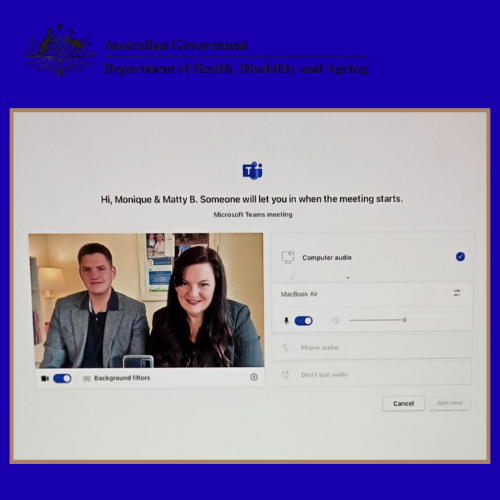Yesterday, just one day after the Thriving Kids reforms were announced, I met with the Department of Health — this time with my son, Matty B, beside me.
For those who don’t know, Matty is Autistic and has an intellectual disability. On paper, he’s someone who would be categorised as having “high support needs.” Yet, in real life, Matty is living a meaningful, connected life, employed full-time and travels the world solo and self funded. It’s a reminder that Autistic people can and do flourish when supported appropriately, not defined by their diagnosis or deficits.
In the meeting, Matty spoke about how he experiences and processes pain and how that difference has often led to missed or inappropriate healthcare and mental health support.
We also raised serious concerns about the language used in the Minister’s recent Thriving Kids speech. The way Autistic people were described was deeply disrespectful and not reflective of how we, as a community, define ourselves. To their credit, the Department acknowledged that they were aware of the wording and anticipated backlash.
Despite the conversation, there was no firm commitment to fund or progress the National Autism Health Roadmap.
This is deeply concerning. The Roadmap was developed with Autistic people, families, and professionals and was designed to tackle health inequities. Without dedicated funding and implementation, it risks becoming another well-intentioned plan sitting on a shelf while Autistic people continue to fall through the cracks of the health system.
The Department did say they would come back to us and other key stakeholders from the Autism Health Roadmap Working Group when there’s more clarity on Thriving Kids, particularly around how health services will support Autistic children. That will likely be after the Commonwealth and states finalise negotiations on Foundational Supports and the National Health Reform Agreement.
Jane Henderson, Director of the National Autism Strategy Section, was present and shared information internally on better practice language around autism.
While these next steps are positive, the absence of a clear funding commitment for the National Autism Health Roadmap is not good enough. Australia cannot keep talking about inclusion and co-design while leaving essential health reforms for Autistic people unfunded.
Author’s note:
I remain committed to ensuring that Autistic people, including those with intellectual disabilities, are genuinely represented in health reform and policy design.

